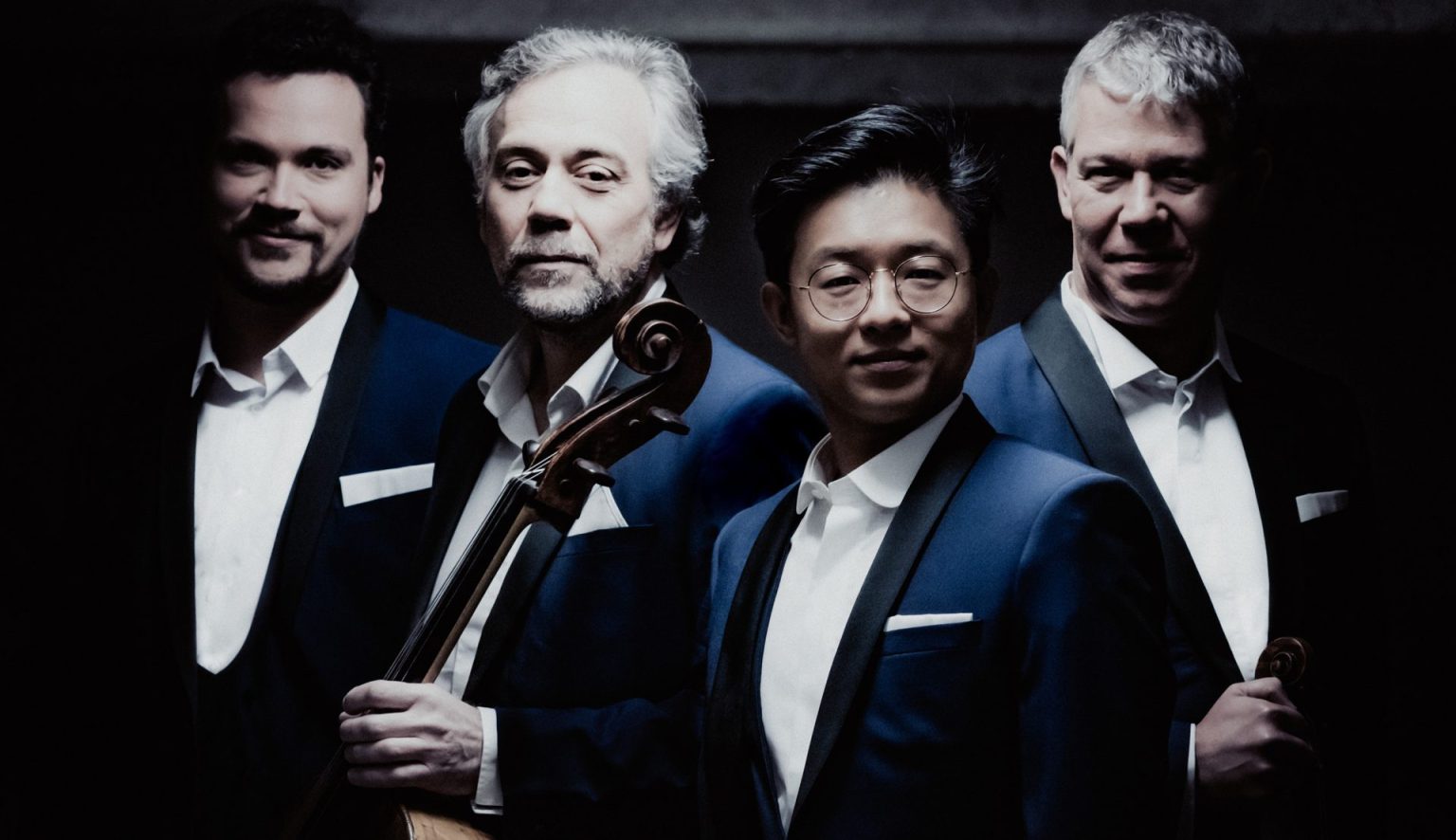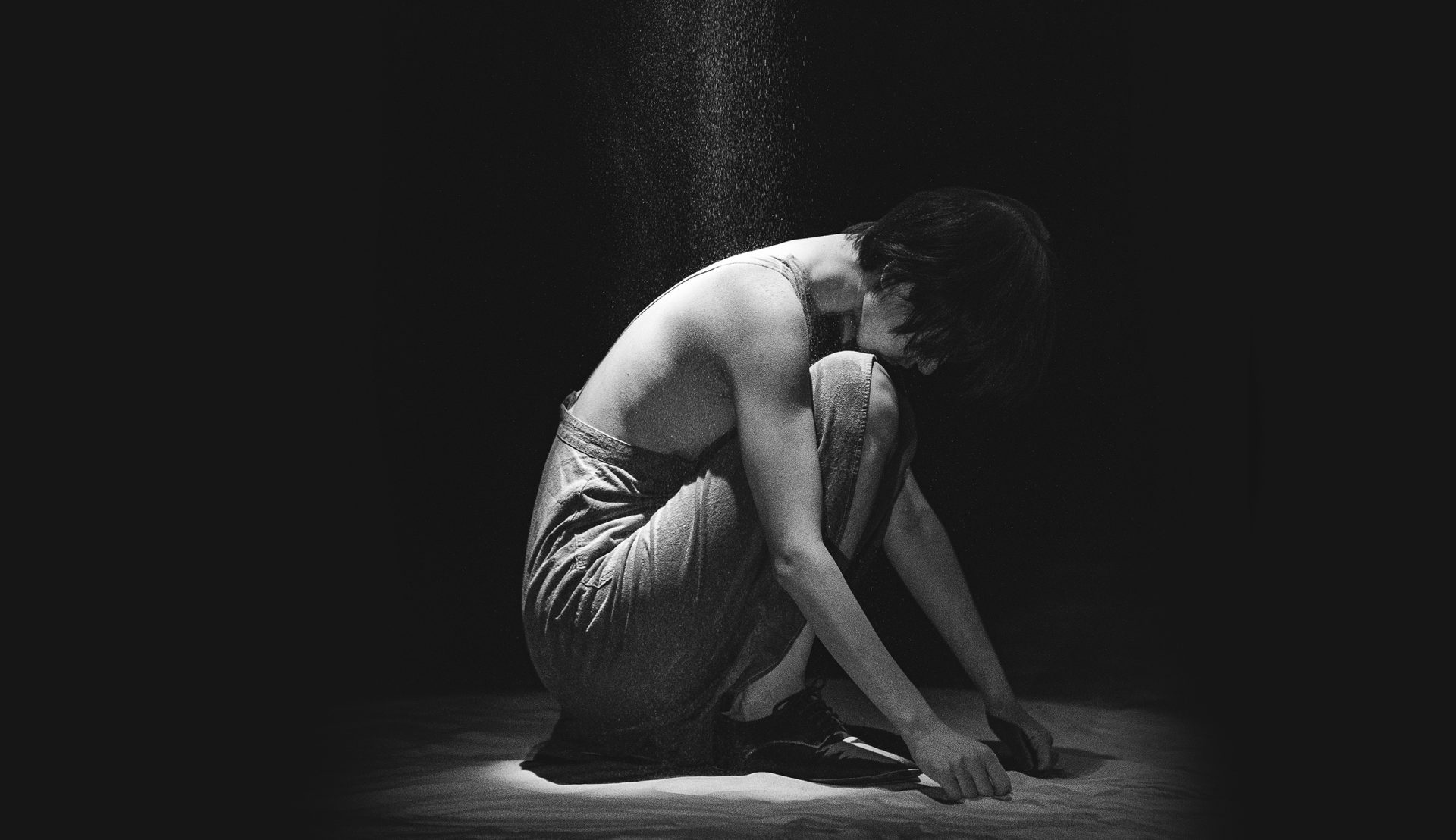Works by Jeppe Just / Lisa Streich / Misato Mochizuki
Quatour Diotima
Playing time
Sunday May 1st 2022 17:00
About the performance
With the work “Gesteilten Saiten”, Jeppe Just challenges the quartet’s classical sound and universe with four automated string instruments, which the quartet must master in addition to their normal instruments. In this way, Gesteilten Saiten expands the tradition and creates new possibilities for a very special sound.
With the work “(ENGEL, ..) NOCH TASTEND2 Lisa Streich explores the sounds that are hidden behind the written notes. A choreography of grotesque birds, concentrated silence and individual musical spaces surprises the ear again and again. A score is written, clear and carefully, but it still contains so many shadow colors because it can never be totally controlled and predicted.The music itself will always be a different performer on stage.
With the work “Brains”, Misato Mochizukis examines the human brain through his compositions. A sonic journey based on human behavior and ability to create relationships, transformed by the quartet’s classical vocation. Man differs from the computer because he is capable of spontaneous learning. Man differs from the animal because it has an awareness of itself. We need fixed patterns and we imitate the gestures of others to get to know each other and ourselves. In this way, Mochizukis challenges us to question our identity and relationship to the world around us.
About the artists
Quatour Diotima:
(FR, 1996) is one of the world’s most sought after chamber ensembles. The quartet consists of Yun-Peng Zhao on violin, Léo Marillier on violin, Franck Chevalier on viola and Pierre Morlet on cello. The quartet’s name evokes a double musical meaning: Diotima is at once an allegory of German romance and a call for contemporary music.
Quatuor Diotima has worked closely with several of the greatest composers of the late twentieth century, most notably Pierre Boulez and Helmut Lachenmann. The quartet regularly commissions new works from the most prominent composers of our time, including Toshio Hosokawa, Miroslav Srnka, Alberto Posadas, Mauro Lanza, Gérard Pesson, Rebecca Saunders and Tristan Murail.
Jeppe Just: Shared pages
(Denmark, 1978) is educated in composition and music theory from the Royal Danish Academy of Music and works with various ensembles such as Ensemble Recherche, Scenatet and Athelas Sinfonietta. In his music he uses, among other things, electroacoustic and homemade, rebuilt instruments. He has studied with Peter Bruun, Ivar Froundberg, Hans Abrahamsen, Niels Rosing-Schow and Bent Sørensen, just as he took his postgraduate studies at the Hochschule für Musik, Karlsruhe, with Wolfgang Rihm. In 2007 he received the Wilhelm Hansen Prize and in 2009 he received a scholarship from the Léonie Sonning Music Foundation.
Lisa Streich: “(ANGEL, ..) STILL ATTENDING”
(Sweden, 1985) have studied composition and organ in Berlin, Stockholm, Salzburg, Paris and Cologne. Her works have been performed in Sweden, Germany, Israel, France, Austria, England, Japan, Canada and the United States, and her music has been played by, among others, the Deutsches Symphonieorchester Berlin, Ensemble Recherche and Nouvel Ensemble Moderne at MATA New York, Ircam Paris and the Cologne Cathedral. Prizes include the Orchestra Prize from the Anne-Sophie Mutter Foundation, the Busoni Prize at the Akademie der Künste Berlin and the Composer Prize by the Ernst von Siemens Foundation.
Misato Mochizukis: “Brains”
(Japan, 1969) uses the work “Brains” to examine the human brain through its compositions. A sonic journey based on human behavior and ability to create relationships, transformed by the quartet’s classical vocation. Man differs from the computer because he is capable of spontaneous learning. Man differs from the animal because it has an awareness of itself. We need fixed patterns and we imitate the gestures of others to get to know each other and ourselves. In this way, Mochizukis challenges us to question our identity and relationship to the world around us.


